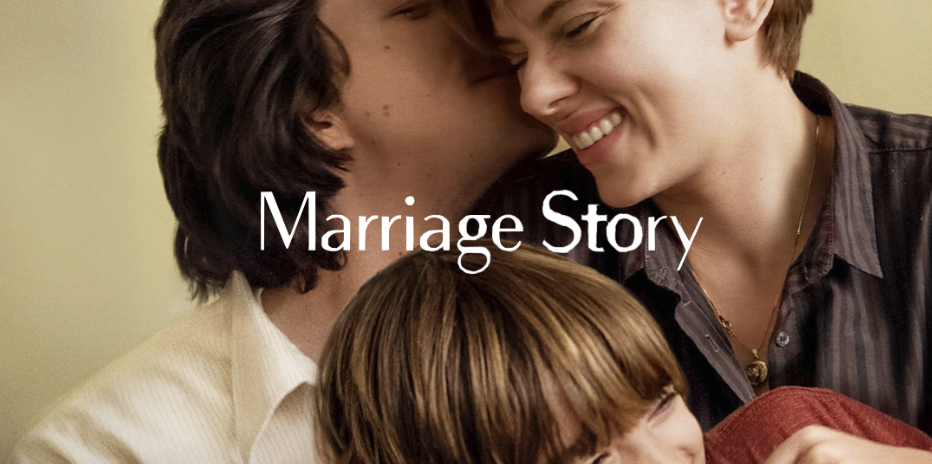|
Warning: This contains spoilers about Marriage Story.
I really had no desire to see the award-winning Marriage Story. None. In the same way that a doctor might have zero interest in watching Grey's Anatomy, the last film this family lawyer wanted to watch on Friday night was a movie about divorce. Last night, though, as sometimes happens in my shared-remote life, that’s exactly where I found myself. Marriage Story didn’t offer me the escapist adventuring I love most about movies, but it did incorporate many key issues central to the majority of divorces in this country. So, in an ironic twist, I will be analyzing and expanding on different issues in this movie I didn’t want to watch because they have interesting, powerful implications for divorcing parties. It is important to note that while divorces are VERY common, rarely are divorces the same; while they all have similar characteristics, they are all unique. These blogs will offer one perspective, but they are not meant to be a substitute for speaking with an attorney about your case specifically. That said, Marriage Story offered fascinating and important considerations about all-too-common issues that I regularly help my clients navigate. Some scenes provided explicit exploration of how issues like residency, parenting time, infidelity, and asset division are addressed in the divorce. Other scenes offered too-fast, overly-vague intimations about critical topics like judge and attorney qualifications, subsequent relationships, and co-parenting that beg for further exploration. Today’s blog will laser in on the parenting evaluation piece of the film and connect it to real-world parenting evaluations in Arizona. THE PARENTING EVALUATION. Adam Driver’s character, Charlie, is Skyping with a decorator to adorn his apartment with cozy furniture, a welcoming rug, framed artwork from his son...and (I think we can all agree) way, way too many plants. The Whole Foods paper bag sits on the table as he roasts organic vegetables and prepares a dinner with enough nutrients to sustain a child for a month. What is going on here...and did he really have to work so hard?, And what power does that the kooky, tap-water drinking, socially-awkward evaluator wield? In Arizona, full parenting evaluations are only ordered when: 1. A party requests one 2. Legitimate fitness concerns exist 3. There is no objection from the other party 4. One or both parties can afford it During an evaluation, the evaluator observes the interaction between a parent and child. They look to see if the parent is aware of, and responsive to, a child’s needs. They survey the environment to verify it is safe and free from drugs, unsecured weapons, and poor judgment. These evaluations are never paid for by the state in civil cases, as they are exceedingly expensive, ranging from $6,000-$10,000 each. If there is an objection, and there isn’t enough of a concern or financial resources to pay for it, the judge can decline to order. These evaluations can occur in the parent’s home, in a psychologist’s office, or a combination of the two. They can solely include observation of the parent and child interacting...or they could also include personality testing (like the MMPI) designed to determine the presence of mental illnesses that could negatively impact their ability to parent. In the film, we get a brief glimpse of psychological testing for both Nicole and Charlie. The purpose of a parenting evaluation is to influence a judge’s decision about what parenting time is in the best interest of a child’s growth and development..and which parent should have legal decision making authority. Parenting evaluators are independent contractors, used by litigants in court, to support their respective positions. They are typically trained mental health providers. Their job is to convey the information procured during their assessment activities. The vast majority of the time, appropriate or not, parenting evaluators will also make a recommendation to the court addressing legal decision making and parenting time. Back to our movie. We never get to see the evaluator’s report...but we learn that the final parenting time split approved by the judge is 50/50 (although Nicole’s attorney negotiates her client an extra 5% on principle). The clean, safe home and healthy dinner offered by Charlie checked some boxes. His redirection of his son when he doesn’t want to help with dinner certainly checked some more. The weird knife incident, you ask? I hear you. Certainly painfully awkward, but not enough, in aggregate with all other evidence of Charlie’s evaluation (most of which we didn’t see) to deny his equal parenting time. Additionally, we did not witness Nicole’s evaluation, which would equally play into any judge’s decision regarding legal decision making and parenting time. Parenting evaluation was just one interesting piece of this movie. Check back for my next Marriage Story blog, which will focus on the HUGE role that establishing residency played in Charlie and Nicole’s divorce...
3 Comments
|
AuthorJason Castle is a family lawyer who specializes in high-conflict cases. He's also a former prosecutor & social worker. Hear his latest divorce thoughts! Archives
January 2024
Categories |



 RSS Feed
RSS Feed